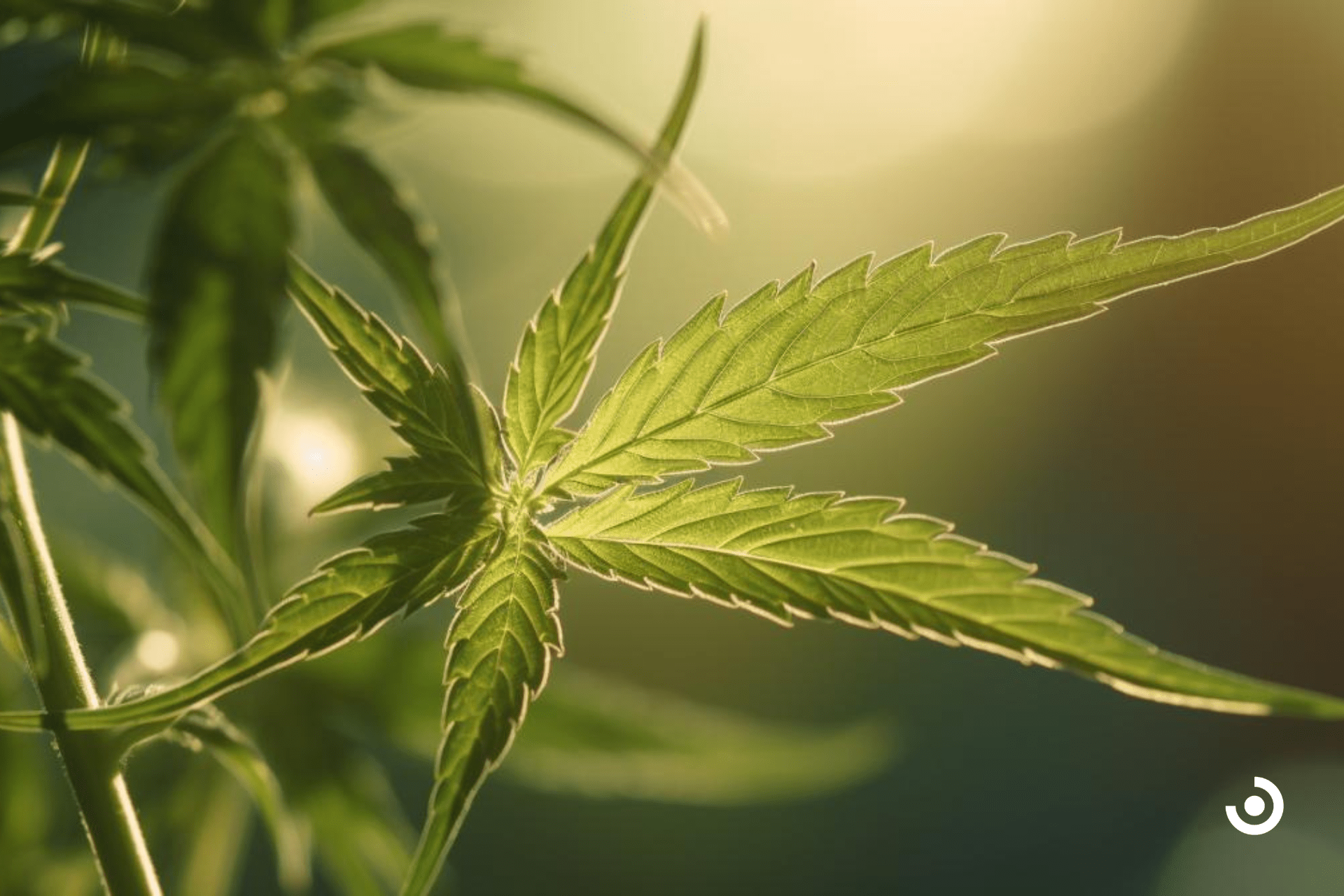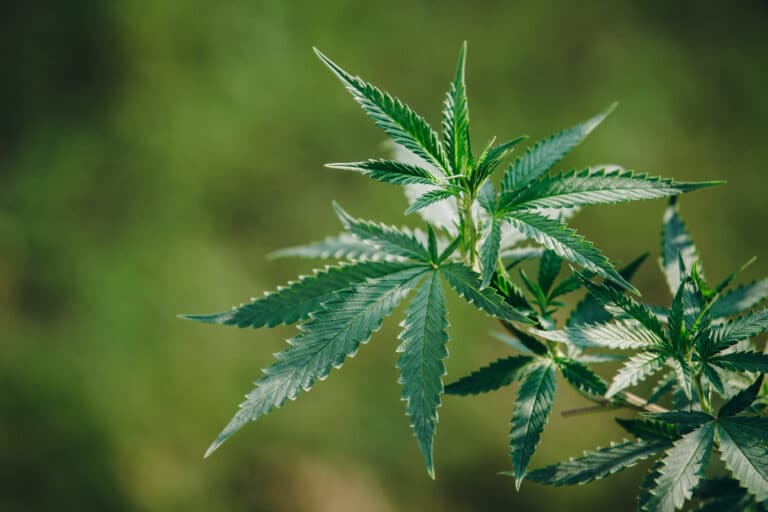Understanding The Side Effects Of THC And CBD
by Tayyaba Amir · February 27, 2024
Discover the surprising side effects of THC and CBD compared. Unveil the truth about their impacts and make an informed decision. Click now to gain eye-opening insights!

Do you have a curiosity about the potential side effects of THC and CBD? Understanding the side effects of these two compounds can help you make informed decisions about your health and wellness. In this article, we will delve into the science behind THC and CBD, explore the common and potential side effects of each, discuss their interactions with medications, and offer tips on managing and minimizing side effects.
When it comes to THC and CBD, knowledge is power. By understanding how these compounds work in your body and the potential effects they can have, you can take control of your health and make choices that align with your well-being.
Whether you are considering using THC or CBD for medical purposes or simply want to be informed about their effects, this article will provide you with valuable insights and practical tips.
So, let’s dive in and discover the side effects of THC and CBD, and how you can navigate them effectively.
Key Takeaways
- THC and CBD have potential side effects that can impact health and wellness.
- Common side effects of THC include dry mouth, increased appetite, impaired coordination, and memory.
- Potential side effects of CBD include dry mouth, diarrhea, drowsiness, and changes in appetite or weight.
- It is important to consult with a healthcare professional and monitor symptoms and potential interactions between THC/CBD and medications.
The Science Behind THC and CBD
When you consume THC, it binds to the cannabinoid receptors in your brain and central nervous system. This interaction leads to the release of dopamine, a neurotransmitter that plays a key role in regulating mood, pleasure, and motivation. As a result, you may experience a sense of euphoria or a “high” feeling.
However, THC can also have other effects on your body, such as increasing heart rate, impairing coordination, and affecting short-term memory.
On the other hand, CBD does not produce the same psychoactive effects as THC. Instead, it interacts with different receptors in your body, such as the serotonin and vanilloid receptors. This interaction can have a calming effect and may help alleviate symptoms of anxiety and pain.
CBD has also been studied for its potential antipsychotic properties, although more research is needed to fully understand its effects. By understanding the science behind THC and CBD, you can better understand how these compounds may affect you.
Common Side Effects of THC
Explore the theory that using THC may result in certain common side effects, giving you a deeper understanding of its potential impact on your body. While THC can provide various therapeutic benefits, it’s important to be aware of the potential side effects that may occur.
Here are three common side effects associated with THC:
- Dry mouth: THC can cause a decrease in saliva production, leading to a dry and parched feeling in your mouth. This can be quite uncomfortable and may also result in an increased thirst. To combat this side effect, it’s important to stay hydrated by drinking plenty of fluids. Chewing sugar-free gum or sucking on ice chips can also help stimulate saliva production and alleviate the dryness.
- Increased appetite: THC is known to stimulate the appetite, often referred to as “the munchies.” This can lead to intense cravings for food, especially high-calorie and unhealthy options. If you’re using THC for medical purposes and you’re concerned about weight gain, it’s important to be mindful of your food choices and try to opt for healthier alternatives. Planning and preparing nutritious meals in advance can help you make better choices when the munchies strike.
- Impaired coordination and memory: THC can affect your motor skills and cognitive function, making it more difficult to perform tasks that require coordination and concentration. It may also impair your short-term memory, making it harder to recall recent events or information. If you need to engage in activities that require focus and coordination, it’s advisable to wait until the effects of THC wear off before attempting them.
By understanding these common side effects of THC, you can make informed decisions about its use and take necessary precautions to minimize any potential negative impact on your body. Remember to always consult with a healthcare professional before incorporating THC into your wellness routine.
Potential Side Effects of CBD
Although research is still ongoing, it’s important to note that some individuals may experience adverse reactions when using CBD. CBD is generally well-tolerated, but it can still have some potential side effects. These side effects may include dry mouth, diarrhea, drowsiness, and changes in appetite or weight.
It’s important to be aware of these potential side effects, as they can vary from person to person. If you experience any of these side effects, it’s recommended to consult with a healthcare professional for further guidance.
In addition to these potential side effects, it’s also important to consider the potential interactions CBD may have with other medications. CBD can alter the way certain medications are metabolized by the body, which can potentially lead to adverse effects.
If you’re currently taking any medications, it’s important to discuss the use of CBD with your healthcare provider to ensure there are no potential interactions or complications.
It’s always important to prioritize your health and well-being, and this includes being aware of any potential side effects or interactions when using CBD. While CBD can offer potential benefits, it’s essential to approach its use with caution and consult with a healthcare professional if you have any concerns or questions.
Interactions with Medications
When using THC or CBD, it’s important to be aware of potential interactions with medications. While these natural compounds can offer various health benefits, they can also interact with certain medications, affecting their effectiveness or causing unwanted side effects.
Here are some important points to consider:
- Consult with your healthcare provider: Before incorporating THC or CBD into your routine, it’s vital to consult with your healthcare provider. They can provide guidance on how these compounds may interact with your specific medications and help you make informed decisions.
- Understand the potential interactions: THC and CBD can interact with medications in different ways. They may inhibit or enhance the effects of certain drugs, leading to adverse reactions or reduced efficacy. It’s important to understand the potential interactions and how they could impact your health.
- Monitor your symptoms: Pay close attention to any changes in your symptoms or the effectiveness of your medications when using THC or CBD. Keeping track of any adverse effects or improvements can help you and your healthcare provider determine the best course of action.
Managing and Minimizing Side Effects
One way to mitigate the potential drawbacks of THC and CBD is by implementing strategies to manage and minimize their impact. If you’re experiencing unwanted side effects from THC or CBD, there are several things you can try to help alleviate them.
First, consider adjusting your dosage. Sometimes, side effects can be minimized by reducing the amount of THC or CBD you consume. Start with a lower dose and gradually increase it until you find the right balance for your body.
Another strategy is to try different methods of consumption. For example, if you’re experiencing anxiety or paranoia from THC, you might want to avoid smoking or vaping and opt for edibles or oils instead. These methods tend to have a slower onset and a more gradual release, which can help reduce the intensity of side effects.
Additionally, make sure you’re using high-quality products from reputable sources. Poorly made or contaminated products can increase the risk of experiencing negative side effects.
By implementing these strategies and being mindful of your body’s response, you can better manage and minimize the side effects of THC and CBD, allowing you to enjoy the potential benefits they offer.
Frequently Asked Questions
Can THC or CBD cause addiction or dependency?
Thc and cbd can potentially cause addiction or dependency if used excessively. It’s important to use these substances responsibly and in moderation, as prolonged and heavy use may lead to psychological dependence and withdrawal symptoms.
Are there any long-term effects of using THC or CBD?
Using THC or CBD over a long period may have various effects. THC can cause memory issues and dependence, while CBD might lead to changes in appetite and fatigue. Consulting a healthcare professional is important.
Can THC or CBD affect the results of a drug test?
Yes, THC can affect the results of a drug test as it is the psychoactive compound in cannabis. CBD, on the other hand, generally does not show up on drug tests.
Is it safe to use THC or CBD during pregnancy or while breastfeeding?
It is not safe to use THC or CBD during pregnancy or while breastfeeding. Both substances can pass through the placenta or breast milk, potentially harming the baby’s development and health.
Are there any known interactions between THC or CBD and other herbal supplements or alternative therapies?
When it comes to interactions between THC/CBD and herbal supplements or alternative therapies, it’s important to be cautious. Remember the old saying, Better safe than sorry. Consult with a healthcare professional to ensure your well-being.
Last Updated: August 8, 2024
Get Approved for Your Medical Marijuana Card in Minutes!

Get Your Medical Card
Connect with a licensed physician online in minutes

Like This Article?
Share with your friends
Table of Contents
Keep Reading
-
3 Steps to Obtain Your Arizona Medical Marijuana Card
Learn how to get your Arizona medical marijuana card in three easy steps.
-
Does Smoking Weed Make You Dehydrated
Find out the truth about smoking weed and dehydration. Don’t miss this eye-opening article that reveals the surprising link between cannabis and dehydration. Click here to quench your curiosity!
-
What Are The Benefits of CBG?
CBG is a non-intoxicating cannabinoid that is known for its therapeutic benefits.



